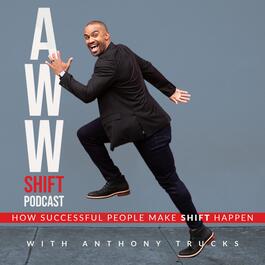
Guesting in for today’s podcast is a Behavioral scientist, consultant, and NY Times Best Selling author specializing in Connection, Trust, Community, and Influence. He is no other than Jon Levy. Jon specializes in applying the latest research to transform the ways companies approach marketing, sales, consumer engagement, and culture. His clients range from Fortune 500 brands, like Microsoft, Google, AB-InBev, and Samsung, to startups. Now, Jon talks about his struggles and discoveries on human traits that allowed him to understand better why personal barriers to human communication exist. [03:40] Why should I listen to you? You should listen to me because a random talk will be more entertaining than listening to another crime drama on your podcast. My first book was about the science of adventure and what leads us to live exciting lives, so if you happen to run into me in public, you’ll most likely have a great time. [04:42] How did you end up doing this endeavor? I believe an eighth-grade teacher arrived and declared that we were going to redistribute the seating chart in secret, and she let each child submit two people they wanted to sit with and two people they didn’t want to sit with. I noticed one child with whom no one wanted to sit, and it was me. Nobody wanted to mingle with me since I was a nerd. In the 1980s, I was fascinated with computer technology. And it was not a cool thing to do. I reasoned that if I could understand human behavior, I could make some friends. And I wish it had a philanthropic bent to it. However, the truth is that as a child, I was pretty lonely. [05:54] What kept you from going down that path? I thought I was one of a kind because I was lonely. Here’s what’s wild, thrilled, and grown-up watching TV episodes like Saved by the Bell, where there’s this core group of friends and the geeky guy in the core group. And I assumed that this was the case for everyone. However, when we examine the research, we notice something else. There’s also this intriguing side that comes up now and then. [07:11] People are undoubtedly lonelier than we prefer to admit. And especially now, with the pandemic and people were cowering at home and all that. As a result, I believe there is a genuine misunderstanding about how vital we are to one another. Even simply getting to spend time with you makes my day so much better. [08:11] What can people do to shift this behavior? I believe there are two factors. The first is that we’ve established a much broader culture of fear. We’ve done things like attribute television shows like America’s Most Wanted throughout the years, making us afraid of our neighbors, especially if they look different from us. As a result, parents grew increasingly protective of their children. [09:03] Then there’s the fact that humans are anti-fragile. This means that when you train and increase strain on your body, you strengthen your ligaments, improve your body’s strength, and make it more fluidly paired. You also learn how to react more effectively. You can better predict your team’s behavior the more time you spend with them. [09:27] The issue is that we now treat children as if they are delicate. That you were to drop them, they would break, and that would be the end of it. However, this implies that we keep them safe. As a result, we plan all of their activities for them. They are never required to improve their social skills. As a result, by the time kids enter college, they are unable to advocate for themselves. Professors have been known to get emails from parents stating that their child requires more time on a test. [10:11] Socialization We have to go through these awkward moments. We have to learn to say, “Hey, do you want to hang out after school?” Maybe we’ll get rejected if we allow for this kind of social skill deterioration. However, we will never be able to properly function until we learn to improve those skills. [13:04] Dealing with rejection is a necessary part of selling those cookies. It’s anti-fragile, and it makes them stronger. Not only that, but kids also learn civics. Nowadays, they have badges for technology. It’s fantastic to have a badge like a cybersecurity badge and all that. Another benefit is that it teaches us how to operate as a group or team toward a single objective, which I believe is critical. [13:44] Without a doubt, these talents are crucial in general and should be acquired as a general thing. Because speaking with others improves every aspect of one’s life and work. We’ve been programmed to believe that people will behave unreasonably. We’ve been conditioned to think that if I say something to you on an aircraft, you’ll throw a tantrum because you’re highly politicized or for whatever reason. [15:34] Frequency Illusion The frequency illusion is a cognitive bias in which we believe something is familiar simply because it is conspicuous and it has an emotional component to it. If I ask, “Can you think of three situations when things went wrong on a flight?” It’s all over the news all the time. You are not aware of it because it only happens occasionally. However, you may fly nonstop for the rest of your life and never see it. [17:02] You’re generally worried when people are waiting for results at doctors’ offices. A study looked into it and discovered that they’re more inclined to start chatting to you because you want to experience a sense of connection, safety, and stability when you’re frightened or afraid of the results. [18:56] According to the seminar leader, the people we surround ourselves with and the discussions we have with them are the primary factors shaping the quality of our lives. Figure out how to surround yourself with the most admirable and exciting people you can find with who you have a great deal of respect. It took me a long time to figure out what causes behavior at various levels of influence and how to interact and connect with those folks. And I ended up going out to suffer as a result of that. [20:15] What can you do to start moving in that direction? The first thing to understand is that humans do not connect or create trust in how we believe they do. We do almost everything backward around here. [20:31] Have you ever been invited to a business dinner when you don’t know the individuals and they take you out to eat? It’s an embarrassing scenario, but people do it because they feel trapped. You might have spent some quality time together but it’s an inconvenient thing to do. [21:13] You’ll observe that they wanted us to develop trust, but they did it by putting us through these difficult situations. This is because what truly works is the polar opposite. The IKEA effect is what it’s called. According to the IKEA effect, we care more about our IKEA furniture since we have to put it together. We put forth the effort, to put it another way. [21:33] If we want to build connections with people, our goal should be to figure out how to encourage them to put effort into us. The ideal technique is to start with a tiny request since once they put in a little effort into you, they’ll be eager to put in more effort. Then, once they’ve done that, they’ll be more concerned about us. So, when it comes to human relationships, it’s all about how much work they put into them. [24:44] Where can we find out more about you and your books? My book is all over the place—Amazon, Barnes & Noble, and, I believe, even airports. “You’re invited” is the title of the book. It also includes audiobooks, eBooks, and other such items, and my website address is jonlevytlb.com. Key Quotes: [09:27 – 09:45] “The problem is that we treat children these days as if they are fragile. That if I drop them, they’ll break. Because of that we keep them safe, have their activities planned by us, etc. But as a result, they will never develop their social skills.” [18:58 – 19:05] “The fundamental element that defines the quality of our lives are the people we surround ourselves with, and the conversation we have with them.” Go to https://www.jonlevytlb.com/ to know about the science of influence and adventure. You can also follow Jon on his socials: Twitter | LinkedIn
From "Aww Shift"




Comments
Add comment Feedback